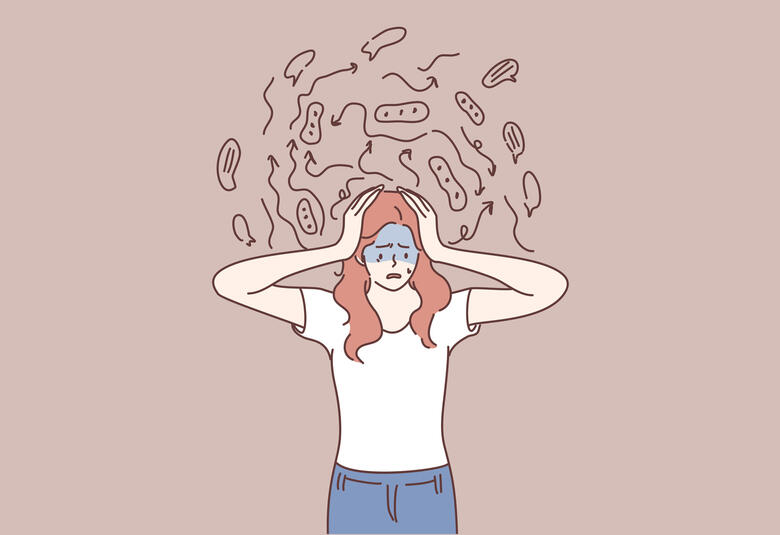Addressing the cognitive symptoms of depression that affect attention, memory, executive function and processing speed is key to a full functional recovery to a pre-depression lifestyle. Experts from Canada, the UK and Australia discussed how best to achieve this in a thought-provoking symposium at EPA 2018.
A top priority for individuals with major depressive disorder (MDD) is to be able to perform at their usual level at work, as well as in their social life and leisure activities, family life and home responsibilities, and interpersonal relationships.2
The speaker explained that in order to address this functional priority for patients, the primary therapeutic objective in MDD must be a full functional recovery.
Functional impairment is mediated by multiple cognitive domains, including attention, memory, processing speed and executive function;1 and almost 90% of patients with MDD report moderate, severe or very severe functional impairment.3 However, even when other symptoms of depression have resolved, individuals with MDD continue to show impaired executive function, memory and attention.4
To achieve a full functional recovery, it is critical to identify and address the cognitive symptoms of MDD
To achieve a full functional recovery, it is critical to identify and address the cognitive symptoms of MDD.1 The speaker noted that the US Medicaid guidelines for MDD now recommend an evaluation of cognition, as well as functional outcome. Research has shown that cognitive symptoms account for more variability in workplace impairment than total depression severity;5 and that workplace functioning is mediated by cognitive dysfunction in adults with diabetes.6
Cognitive symptoms account for more variability in workplace impairment than total depression severity
The impact of depression on the workplace was also mentioned by the speaker. Research has shown that high economic burden of MDD is largely driven by workplace productivity losses,7 attributed to absenteeism or decreased productivity.8
Standard depression scales do not assess all cognitive domains
Despite the importance of identifying and addressing cognitive symptoms to achieve a full functional recovery for patients with MDD, all cognitive domains are not assessed by standard depression scales. These scales include the Hamilton Depression Rating Scale (HAM-D), the Montgomery-Åsberg Depression Rating Scale (MADRS), the Beck Depression Inventory and the Patient Health Questionnaire.9,10
All cognitive domains are not assessed by standard depression scales
The presentation focused on how to best identify and measure cognitive impairment. Although many options are available, the speaker explained that comprehensive cognitive testing is restricted by availability, cost, administration time and the need for specialist interpretation of the results. Subjective cognitive scales are a practical alternative for clinical settings, but the correlation between subjective and objective measures of cognition is limited.11 In addition to this, the speaker explained that cognitive decline can occur in an individual without falling outside the ‘normal’ cognitive performance range.
Common, marked characteristic cognitive deficits in MDD affect working memory, executive function, episodic memory and processing speed12
The THINC-it® tool has therefore been developed and recently validated13 to meet the need for a comprehensive and reliable tool to assess, monitor and address cognitive functioning in MDD. It is a freely available, self-administered, computerised screening tool for assessing cognition in MDD.1,13
The speaker demonstrated how to use THINC-it® to identify and measure cognitive deficits using five gamified and computerised tests: 1. the Perceived Deficits Questionnaire for Depression five-item version (PDQ-D5), a self-report questionnaire about cognition; 2. the “Spotter,” a reaction time test of attention; 3. the “Symbol Check,” which tests working memory; 4. the “CodeBreaker,” a coding test that measures attention and executive function; and 5. the “Trails,” which measures executive function.14
The ultimate goal in managing MDD is to treat to full functional recovery
The session explored the non-pharmacological and pharmacological approaches for treating MDD, with the ultimate goal of achieving full functional recovery. Observational studies can help provide real-world evidence of the impact of cognitive symptoms in the clinic and support the importance of cognitive symptoms as a treatment target in MDD to improve daily function and overall outcomes.
Comprehensive management of depression will probably require a combination of pharmacological therapies with other approaches to address all emotional and cognitive aspects1. With proper recognition in the clinic, cognitive symptoms can be addressed effectively, allowing for a more complete functional recovery for the patient and thus improving their overall quality of life.1
This website has been developed by Lundbeck UK. Highlights from the symposia are a fair, accurate and balanced representation of the scientific content presented at the meeting and have been adapted for the use of UK healthcare professionals.






